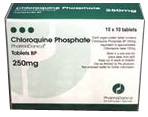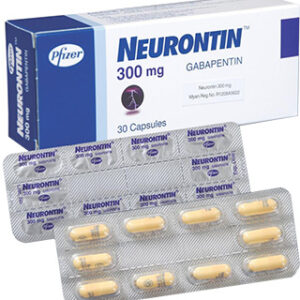Antabuse Overview
Antabuse, known generically as disulfiram, stands as a therapeutic staple in alcohol addiction management. Manufactured in tablet form, it is typically administered to individuals seeking to maintain sobriety after the cessation of alcohol consumption. Antabuse acts as a deterrent to drinking by inducing aversive physiological effects upon alcohol intake.
Action Mechanism
Disulfiram operates by interfering with the degradation of alcohol within the liver. Normally, alcohol is metabolized in two key stages: it’s first converted to acetaldehyde, and then to acetic acid. Disulfiram halts this process at the first stage, triggering the accumulation of acetaldehyde, an unpleasant substance that causes unwanted reactions when alcohol is consumed.
Usage Indications
Antabuse is indicated for individuals with chronic alcoholism who have made a decision to abstain from alcohol and seek a pharmacological assistant to avoid relapse. It is most effective when used in conjunction with comprehensive therapy programs, including psychological support and lifestyle modification.
Administration and Dosage
Administration of Antabuse should commence only after a patient has abstained from alcohol for at least 12 hours. The recommended starting dosage for adults is 500 milligrams daily for one to two weeks, followed by a maintenance dose of 250 milligrams per day, although individual adjustment to the dosage may be determined based on patient response and tolerance. Antabuse tablets should be consumed orally and may be taken with or without food.
Contraindication Notes
Antabuse therapy is not recommended for individuals with known hypersensitivity to disulfiram or any other component of the formulation. It is also contraindicated for patients suffering from severe myocardial disease or coronary occlusion, psychoses, and individuals with current consumption of alcohol or metronidazole. Caution should be exercised when considering Antabuse for those with certain medical conditions such as severe hepatic or renal impairment.
Cautions and Warnings
Extreme caution is warranted when initiating Antabuse therapy among individuals with a history of severe heart disease, diabetes mellitus, hyperthyroidism, epilepsy, or cerebral damage. Disulfiram should only be used after the risks have been thoroughly discussed and understood by the patient. Furthermore, patients should be cautioned of the potential for a disulfiram-alcohol reaction (DAR), which can be severe and even fatal.
Reactions Adversely Noted
Patients taking Antabuse may experience a range of adverse reactions, the most notorious of which is the disulfiram-alcohol reaction. Symptoms can include but are not limited to flushing, headache, nausea, vomiting, chest pain, and palpitations. Other possible adverse effects may consist of dermatological issues, hepatic changes, optic neuritis, and a multitude of neuropsychiatric symptoms.
Pharmacological Interactions
Antabuse can interact with several other medications, leading to either increased or unexpected adverse effects. It is paramount to avoid concurrent ingestion of alcohol-containing products. Medications such as warfarin, phenytoin, benzodiazepines, and isoniazid have been known to demonstrate interactions with disulfiram. Consultation with a healthcare professional is advised to discuss all current medications prior to starting Antabuse therapy.
Population-Specific Considerations
Pregnancy and lactation: Antabuse should be used during pregnancy only if the potential benefit justifies the potential risk to the fetus. Women who are breastfeeding should also exercise caution and discuss potential risks with their healthcare provider. Pediatric and geriatric: There has been limited research on the safety and effectiveness of Antabuse in pediatric and geriatric populations. Use in these groups should be approached with careful consideration and under medical guidance.
Excessive Dosage Measures
In instances of Antabuse overdose, immediate medical attention is warranted. Symptoms of an overdose may include drowsiness, vomiting, loss of coordination, and seizures. Supportive measures alongside symptomatic and supportive therapy serve as the primary management for an overdose, as there is no specific antidote for disulfiram toxicity.
Storage Guidelines
Proper storage of Antabuse protects its efficacy and safety profile. The medication should be stored at room temperature away from moisture and light. It is also crucial to keep this medication out of the reach of children and to dispose of any unused tablets following the expiration date properly.
Patient Counseling Information
Prior to initiating Antabuse therapy, patients must be thoroughly briefed on the nature of the disulfiram-alcohol reaction and the importance of abstaining from alcohol in all forms, including in sauces, medications, and hygiene products. Continuous medical supervision and periodic liver function tests are recommended. Patients should also be advised to carry an identification card indicating they are taking disulfiram and notifying healthcare professionals in case of an emergency.





Nicholas (verified owner) –
Reliable quality, secure, and private.